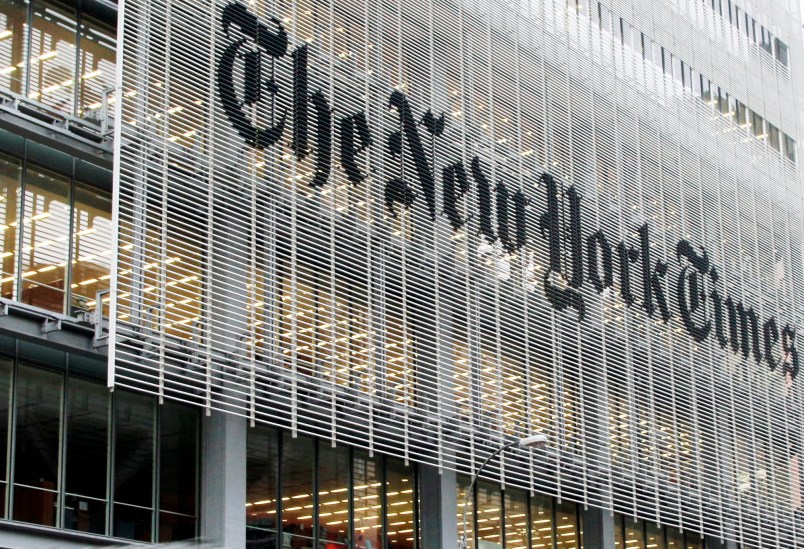As you’ve seen, the Times has now issued yet another correction on that terribly botched story about Hillary Clinton and her emails. The scale of the screw up is frankly mind-boggling. But there’s a point in the follow up – particularly Times Executive Editor Dean Baquet’s response – which I think points to at least an element of the problem.
Baquet says you can’t lay the blame on the reporters or the editors since their sources simply were wrong.
That’s wrong – and frankly a bit jarring to hear.
There are felony and misdemeanor mistakes journalists can make. If a reporter has trusted sources who give him or her information and it turns out to be false, assuming they made solid independent efforts to confirm it, believe me, any journalist is going to feel that reporter’s pain. That’s every reporter’s worst nightmare. But it’s never the source’s fault. You might as well say it’s the fishes’ fault if you have a bad day fishing. When you get something this wrong there is always a breakdown in verification.
But what I really want to zero in on is this quote from Baquet. “You had the government confirming that it was a criminal referral. I’m not sure what [the Times reporters and editors] could have done differently on that.”
This is a telling statement. The ‘government’ didn’t tell the Times anything. Anonymous people in the government told them something. Big, big difference. It’s not a semantic distinction.
When the government says something, it’s news – whatever its accuracy. If the government says something and it’s a lie, it’s news. Journalists should report it and explain why it isn’t true. The fact that the government says something makes it news in itself. Relatedly, the government has obvious authority to state explain what it is doing. So if the Department of Justice issues a press release saying it is conducting a criminal investigation, a reporter doesn’t need to independently confirm that. If the White House Press Secretary says the President is traveling to Great Britain, no need to confirm. Now, obviously there are various permutations of these scenarios. The government, for better or worse, often does communicate through anonymous sources. And in many cases, that information is similar, though not the same, as a formal public statement.
But the information the Times was dealing with obviously did not fall into that category. And I don’t think Baquet’s statement is an accident. When you’re the Times, you’re first at the trough. You get the favored leaks. Your reporters get the call because they’re at the Times. Don’t get me wrong. I know many Times reporters and in almost every case they’re there because they’re extremely talented journalists. But the pattern I’m describing is just the reality of being a reporter at the Times and to a lesser degree places like the Post, the Journal and other major papers. And that gets you in the habit of a certain kind of access journalism that can let the normal level of checking, confirming and a reporter’s biggest ally, fear, atrophy.
Reporters from most news outlets almost never get information from that close to the heart of power. So you’re piecing information together from random sources, ones with indirect lines of information to where the action is, outside experts, documents, FOIAs. You almost never have, well, the President’s top advisor told me. So it breeds a level of double and triple checking because you almost never have the story from the horse’s mouth.
I’m actually pretty against the post-Iraq War uptightness about anonymous sources. Anonymity is often the only way to get real and verifiable information. But your anonymous sources in the government are not the government. If they tell you something and it’s wrong, ‘hey, what else were we supposed to do’ truly doesn’t cut it.
Remember, the Times was one of the biggest sources of misinformation, disinformation and false information in the lead up to the Iraq War. And it wasn’t only Judy Miller.






